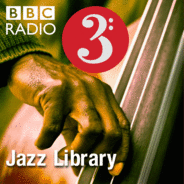
JazzKultur & Gesellschaft
Jazz Library Folgen
Advice and guidance to those interested in building a library of jazz recordings.
Folgen von Jazz Library
phonostar hat keine Informationen zu diesem Inhalt.

Advice and guidance to those interested in building a library of jazz recordings.
phonostar hat keine Informationen zu diesem Inhalt.